Do you want to break into Data Science in 2024? Then you should consider trying to get your first Data Science internship.
Internships can help you gain invaluable experience and set you up for success in the ever-evolving field of Data Science. But with fierce competition, limited opportunities, unclear information overload, and no clear action plan in place, how will that dreamed-of internship come your way?
No worries! In this handbook, I'll guide you through the 7 essential steps for landing a data science internship in 2024. Whether it's your first experience or you want to switch careers entirely, this guide can give you all of the strategies and insights to set you apart from your competition.
Here’s What We’ll Cover:
Ready to take the first step towards your data science dream? Let’s dive in and unlock the secrets to securing your first data science internship:
- Data Science and AI Resources
- Why Data Science Internships are Important
- What's Your Path in Data Science?
- What Is a Data Science Internship?
- Must Have Tech Stack for Data Science Interns
- Learn Data Science Fundamentals
- How to Select Projects for Building a Personal Portfolio
- How to Showcase Your Work
- Understanding the Nuances of Data Science Tools
- Tips for Landing Your Dream Data Science Internship
- How to Discover Internships When Starting Out
- How to Apply to Internships
- How to Overcome Challenges and Stand Out
- Conclusion: The Journey Ahead
- About the Author — That’s Me!
- Become Job Ready Data Scientist with LunarTech
- Connect with Me
1. Data Science and AI Resources
Do you want to discover everything about a career in Data Science, Machine Learning and AI, and learn how to secure a Data Science job? You can download this free Data Science and AI Career Handbook.
Or do you want to learn Machine Learning from scratch, or refresh your memory? Then you can read this free Machine Learning Fundamentals Handbook to get all the ML fundamentals combined with examples in Python in one place.
And if you want to learn Java Programming from scratch, or refresh your memory, you can read this free Java Programming Fundamentals Book to learn all the Java coding basics along with object-oriented programming concepts and code examples.
2. Why Data Science Internships are Important
Data science has become an indispensable field in today's tech world. Businesses and industries increasingly rely on data scientists to uncover vital insights and drive innovation, yet for many aspiring individuals it may seem daunting and bewildering.
In this section, we will delve deeper into data science and the significance of finding an internship opportunity in data science. We will highlight its value in helping bridge theoretical knowledge and practical experience, and you'll learn how internships can offer invaluable help on this journey.
When to Pursue a Data Science Internship
But the question is, do you need a Data Science internship? When should you consider seeking a data science internship, and why is the timing important?
Before we dive in, let me tell you that if you do have a technical degree such as a Masters in Statistics, Econometrics, Computer Science, or other similar programs, then you just need to grasp the fundamental DS concepts, build a project portfolio, and you can apply to full-time Data Science jobs (don't forget about interview preparation)!
But if you don't fall under this category, entering the Data Science and AI field will be much easier through a Data Science Internship. It can help you gain the experience and knowledge you'll need to kick start your Data Science career.
Data science internships can be highly beneficial at various stages of your technical career, depending on your career goals and your background:
- Early in Your Academic Journey: If you are a student pursuing a degree in statistics, data science, computer science, or a related field, getting an internship early on while you are studying can be beneficial. This will provide you with real-world exposure to data science practices, helping you apply classroom theory to practical situations.
- Career Switchers: If you are considering a career switch into data science or AI, Data Science internships can serve as a bridge between your previous experience and your new path. It will allow you to gain hands-on experience and build your personal portfolio, which can be the key to kick-starting your career.
- Mid-Career Advancement: Even if you are already in a Data-related domain, pursuing a data science internship can be a strategic move. It enables you to acquire specialized skills like GenAI, LLM, or Quantum Computing, stay up to date with industry trends, and potentially explore more senior roles or leadership positions.
- Exploring Specializations: Data science incorporates such a wide range of specializations, from advanced analytics and machine learning to natural language processing and deep learning. Internships can offer you the opportunity to explore these different areas within data science and identify where your interests and strengths lie.
Importance of Data Science Internships
Data science internships present an unparalleled opportunity for aspiring data scientists to apply their knowledge and abilities in practical settings.
As an intern you will gain hands-on experience working with data, analyzing trends, utilizing various tools and technologies and working alongside industry professionals. This will give you invaluable insight into its practical aspects as well as an expanded understanding of its applications.
Bridging Theory and Practice
Though theoretical knowledge forms the core of data science, practical experience is equally essential to become an adept data scientist.
Data science internships serve as a bridge between theory and practice by providing opportunities to apply academic learnings to real-life data challenges while honing your problem-solving abilities.
Through internships, aspiring data scientists can enhance their skills, gain exposure to real-world challenges, and perfect their problem-solving techniques.
Finding Your Niche in Data Science
Data science is an expansive field that spans multiple domains and industries. To explore your passions and abilities in data science effectively, it is vital that you explore various paths. Machine learning, data analysis, and data visualization are all present within this discipline, so there are untapped opportunities just waiting to be explored.
As we move through the following sections, we will explore each element of securing a data science internship, from tips for standing out during application processes to building necessary skills and overcoming any potential hurdles that may stand in your way.
Real life examples and success stories will also serve as guides on your journey towards your first data science internship!
Keep in mind that data science is an evolving field that demands dedication, continuous learning, and perseverance if you want to excel. Let's discover together the world of data science in 2023 and uncover its secrets.

3. What's Your Path in Data Science?
The internet is bursting at its seams with courses, tutorials, and advice on data science and machine learning. So it’s easy to get lost or even overwhelmed. Information overload is real!
If you’re feeling swamped, it’s time to take a step back. Ask yourself: “What in data science lights my fire?” It’s all about finding that sweet spot that aligns with your passion and drive.
First, get clear on what Data Science is and what are kind of projects Data Scientists do in the current market, as it's changing a lot over time. What are some emerging trends in Data Science and where are they used? In what companies with what applications?
If you want a clear summary and want to learn everything about Data Science or AI, check the Resources section in this end of this handbook.
So, if you’re scratching your head, wondering how to craft your path in the world of data, start with understanding the landscape. Get clear on what is out there and makes you tick, focus on it, and trust me, that internship won’t feel out of reach for long.
Understand Different Data and AI Business Titles
You must also know the differences between various data and software titles that are being used interchangeably in the industry. Often it’s on you to know whether a Data Science job is actually a Data Engineering job or a Data Analyst job.
Data Analyst: Interprets complex datasets to extract insights and support decision-making. Often uses statistical tools and software like Excel, R, or Python.
Data Engineer: Designs and maintains the architecture (like databases and large-scale processing systems), pipelines, and data sets that data analysts and data scientists use.
Machine Learning Researcher: Focuses on developing new algorithms and models in machine learning. Their work often contributes to academic knowledge and might be published in journals.
Machine Learning Engineer: Applies machine learning algorithms and models into applications, ensuring they run smoothly in real-world conditions. Often collaborates with data scientists to integrate ML models into applications.
AI Researcher: Explores advanced concepts, theories, and methodologies in artificial intelligence. Their goal is often to push the boundaries of what machines can do.
AI Engineer: Designs and implements AI models into products and solutions, optimizing them for performance and scalability.
NLP Specialist: Works specifically with machines to process and analyze vast amounts of natural language data, aiming to teach machines how to understand human language.
Product Data Scientist: Focuses on applying data science techniques to improve products, enhance user experience, and drive product strategy.
Full Stack Data Scientist: A jack-of-all-trades in the data world. Basically, a person who does it all, from data analytics and Machine Learning to Engineering. They can handle everything from data extraction and cleaning to deploying machine learning models, often bridging the roles of data analyst, engineer, and machine learning practitioner.
This is the least you should know before selecting your portfolio projects and crafting your digital DNA. I've written an in-depth post on this if you want to dive deeper. You can read it here on LinkedIn for more info.

4. What Is a Data Science Internship?
While some view data science as data analysis or AI engineering, the reality lies somewhere in between. A data science internship offers aspiring data scientists the chance to connect theoretical knowledge with practical application in the form of meaningful projects. It offers them hands-on experience while honing their craft for real world projects, which can really help when it comes time for the job hunt.
At its core, data science internships involve working with data to gain insights, solve problems, and make data-driven decisions. Interns work alongside experienced professionals in the industry. Interns learn from more experienced data scientists' expertise while contributing to projects with tangible impacts.
A data scientist intern's daily responsibilities may vary depending on their organization or project scope. Let's look at a few of them in more detail:
Data Exploration and Cleaning
Data science interns gain experience in maintaining data quality and integrity. Working with diverse datasets, they explore and clean them to ensure accuracy and consistency of results for analysis purposes. Identifying missing values, handling outliers, and reconciling discrepancies to prepare the data are all part of this task.
Data Analysis and Modeling
Interns employ statistical and machine learning algorithms to analyze data and draw meaningful insights. They develop models to predict trends, classify data or address specific problems. This requires an in-depth knowledge of various algorithms and the ability to select those best suited for specific situations.
Bottom Line
Interns typically won't be asked to train complex Machine Learning or Deep Learning models like RNNs with LSTMs, GANs or LLMs unless the data requires large scale processing for big impact projects.
An intern's work may consist of easier Logistic Regression models for testing purposes or boosting models as part of part of a process that primarily focuses on easy data processing and requires fewer thought processes to achieve results.
Data Visualization and Communication
Data science interns don't just focus on crunching numbers and running algorithms. They also strive to effectively communicate their findings to stakeholders through visually appealing data visualizations that explain complex information quickly and clearly.
Collaboration and Networking
Interns work closely with cross-functional teams, contributing their unique perspectives and working in a team environment while strengthening communication and interpersonal skills. Interns also gain the chance to develop professional relationships and expand their networks within the data science community.
Companies such as Microsoft and Amazon offer highly coveted data science internship programs. Interns who participate benefit from being exposed to cutting-edge technologies, receiving guidance from industry professionals, and working on impactful projects. They get valuable practical experience while making meaningful contributions in their respective fields.
An Inside Look at My Data Science Internship: A Preview of What to Expect
Here is an example of what my Data Science internship looked like to help you know what might be coming your way.
While doing my Masters in Econometrics, a group of other students and I were working for a client while at the same time working for a tech conslutancy in Amsterdam. At high level, our goal was to use Machine Learning to identify customers who were leaving and to recommend them a personalized marketing strategy for the launch of their loyalty card.
We had to do this by modeling churn, clustering customers into good, better, and best, and identifying group dynamics.
My day-to-day responsibilities were:
- Collaborating with fellow Data Scientists: I had regular meetings with my peers to brainstorm ideas, receiving valuable instructions and insights from more senior developers.
- In-Depth Research: I spent significant time doing extensive research, and I also learned about Machine Learning to develop a solid foundation in it.
- Data Analysis and Visualization: I conducted data analysis and visualization to learn about the customers of this chain of stores and their buying behaviour.
- Hands-On Coding: I did lots of coding, implementing various Machine Learning models including K-Means and Decision trees to cluster customers into 3 groups (Good, Better, Best) and their group dynamics (how likely is one customer to go from Good to Better cluster?).
- Presentation Preparation: I employed my presentation skills, to craft engaging and business savvy presentations for the client.
An internship in data science can provide an invaluable foundation for budding data scientists. By demystifying daily responsibilities of data science internships we hope to inspire individuals into taking this exciting path toward their career goals.

5. Must Have Tech Stack for Data Science Interns
You might be wondering – what tools and technologies do you need to know to get a Data Science internship? This is a crucial question, because your technical stack not only shapes your daily work but also defines your career in Machine Learning and AI.
Here is a list of some of the programming languages and tools you may be expected to know:
1. Programming Languages and IDEs: Python, SQL, R, Stata
2. Technical Tools: Github, Excel
3. Python Libraries: Machine Learning Libraries: ScikitLearn. Data Analysis Libraries: Pandas, NumPy, SciPy, StatsModels. NLP Libraries: NLTK. Data Visualization Libraries: Matplotlib, Seaborn.
As a Data Science intern, you are typically expected to know 1–2 programming languages like Python and SQL at a basic level. You'll also want to be familiar with some common Data Science libraries, like scikit-learn, Pandas, and Matplotlib. But more importantly, you'll need to know the fundamentals of Data Science.
The next section will be all about these must-know fundamentals that you need to know to become a well-rounded Full-Stack Data Scientist and later AI Engineer.

6. Learn Data Science Fundamentals
If you’re an aspiring data scientist, you might relate to a trend I’ve observed: many dive into the deep end, taking on intricate projects, especially those involving complex neural networks. Such ambition is admirable, but there’s a catch.
Before immersing yourself in the advanced realms of data science, make sure you have your fundamentals firmly in place – especially if you haven’t benefited from a technical degree background.
Many entry-level roles in data science won’t ask you to train and deploy complicated deep learning models right off the bat.
Instead, they’re looking for individuals adept at data analysis, visualization, statistical programming, data quality checks, A/B testing, text cleaning, and so on. They may also want you to be capable of training and testing straightforward machine learning models.
Hence, my suggestion to focus on the fundamentals.
And by fundamentals, I mean:
- Fundamentals of Statistics
- Fundamentals of Machine Learning
- Basics of NLP
- A/B Testing and Experimentation
- Programming for Data Science (for example Python basics or R basics)
Ensuring you have a rock-solid grasp of these foundational elements doesn’t just make you a more appealing candidate for that first job — it also paves the way for future growth. As you consolidate your knowledge in the basics, transitioning to more advanced projects becomes a natural progression.
Check out the resources section for free handbooks that I crafted meticulously for you covering all the fundamentals in one place.

7. How to Select Projects for Building a Personal Portfolio
Hands-on experience is crucial in the field of data science. Employers are often looking for candidates who have practical skills and can apply them to real-world scenarios.
As an intern, you likely won't be expected to have that many projects under your belt (compared to someone who wants to become a Junior Data Scientist right away). But it's still good to demonstrate that you have some hands-on experience.
So, when entering the field of Data Science, you'll need a portfolio of projects to showcase. This helps potential employers see that you not only know the theory but that you also have that hands-on experience.
The essence of your portfolio lies not just in its existence, but in the careful selection of the projects it houses.
Beyond the projects you work on for your coursework or through online platforms, taking the initiative to create your own personal projects can significantly enhance your skills and make you stand out.
Choose a topic or problem that interests you and design a project that allows you to explore different aspects of data science. This not only demonstrates your proactivity but also shows your ability to identify and tackle data-related challenges independently.
It’s crucial to focus on 2–5 outstanding projects that not only demonstrate your skill set but also align with your desired specialization.
For instance, if you’re leaning towards becoming an NLP specialist, anchor your portfolio around relevant projects instead of diverting into Computer Vision. Similarly, aspiring GenAI or AI Engineers should demonstrate their skills in these areas, rather than focusing on, for example, Product Data Science projects.
These deliberate choices ensure that your portfolio is not just a testament to your technical prowess but a clear indicator of your career trajectory and specialization intentions. Present these high-caliber projects on platforms like a personal website or GitHub, ensuring they are underpinned by thorough documentation and engaging narratives.
Remember, a thoughtfully curated portfolio doesn’t just spotlight your skills – it gives potential employers a window into your focus and passion.
For instance, if you’re gravitating towards being a Data Analyst, projects that showcase your adeptness in interpreting complex datasets using tools like Excel, R, or Python can be pivotal. Those aiming to be Data Engineers might want to emphasize projects that deal with designing databases or maintaining large-scale processing systems.
Future Machine Learning Researchers can consider sharing innovative algorithms or models they’ve worked on, especially if they’ve contributed to academic research or been featured in journals. On the other hand, Machine Learning Engineers should pivot towards projects that integrate these algorithms seamlessly into applications, demonstrating real-world efficacy.
If AI Research is your calling, your portfolio should encapsulate advanced theories and methodologies that push the boundaries of machine intelligence. AI Engineers, in contrast, could prioritize projects that weave AI models into scalable and high-performance products.
NLP Specialists should focus on projects that delve deep into processing and interpreting vast volumes of natural language data, bridging the gap between machines and human language. Those with a penchant for Product Data Science can select projects that illuminate their prowess in enhancing user experiences, driving product strategies, or improving existing products using data insights.
Lastly, if you identify as a Full Stack Data Scientist, your portfolio should be a smorgasbord of projects, touching upon data extraction, cleaning, ML model deployment, and more, highlighting your versatility.
Remember, the key lies in aligning your projects with your aspirations. Your portfolio doesn’t just display your skills but also signals your specialization to potential employers. It helps ensure that you’re seen as a valuable asset in your chosen domain.

8. How to Showcase Your Work
For those who’ve mastered the fundamentals but find themselves grappling with how to convey their knowledge, the issue often boils down to presentation.
Just possessing knowledge isn’t enough – it’s crucial to communicate it effectively. How you structure your wealth of skills and knowledge, especially on platforms like your résumé, can be the deciding factor in your career trajectory.
So, you need:
- Personal website
- Github profile
- Résumé
You might wonder, “What if I lack a technical degree?” or “How do I present my diverse learning experiences?” The answer lies in storytelling.
Across numerous discussions, whether it's on LinkedIn or in personal interactions, I consistently emphasize the power of narrative. Don’t just showcase your code. Narrate the journey, the challenges, the solutions, and the results.
A compelling narrative is best complemented by a well-curated résumé that’s concise yet impactful. You'll also want to maintain a meticulously organized GitHub repository and a personal website that mirrors your data science journey and passion.
These platforms not only demonstrate your technical skills, but also your commitment to the field and your professional demeanor.
If you’re at the starting line, pondering on how to plunge into the data science realm, consider enrolling in a specialized course or bootcamp. These platforms can offer structured learning and can provide a springboard to build those crucial portfolio projects.
Remember, in the digital age, your online presence — your ‘Digital DNA’ — is your brand. It’s more than just a showcase – it’s a testament to your dedication, skills, and your unique story in the vast world of data science.
Here are my trips for you on how to craft each of those 4 products:
How to Build an Unforgettable Personal Website
In my journey through Data Science, Machine Learning, and AI, I’ve come to realize the importance of a robust digital presence.
A personal website, essentially, acts as a 24/7 résumé, broadening your horizon for various opportunities. If you’re a fellow tech enthusiast, establishing this personal platform is an absolute must.
Here are my tips, distilled from my experiences, on crafting a compelling personal website. I'll use my own as an example.
About You Page:
- Introduction: Start with a brief, engaging statement about who you are and what drives you in the tech field.
- Educational Journey: Detail your academic path, spotlighting your university, and any significant achievements or distinctions you’ve earned.
Below is my About Me page of my personal website and the link to it:
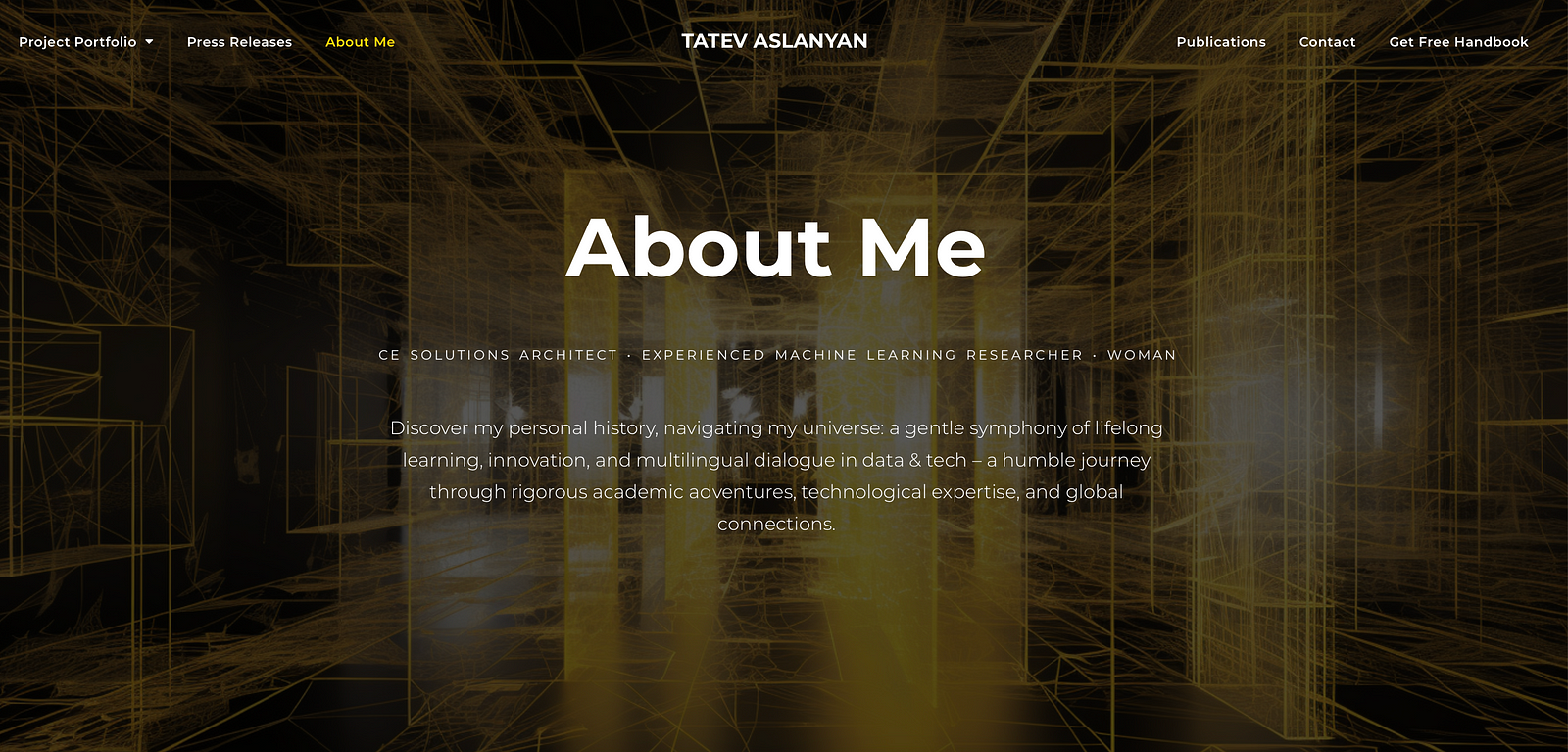
Portfolio Page
- Project Overviews: Highlight your pivotal projects, providing insights into the companies you’ve collaborated with, the roles you undertook, durations, and your pivotal contributions.
- Interactive Demonstrations: Think about incorporating dynamic data visualizations or interactive elements to make your page more engaging.
Tech Stack and Work Samples Page
- Showcasing Your Code: Share sections of codes you’ve worked on, be it in Python, PySpark, SQL, or other tools/languages. Accompany them with brief annotations or explanations to offer context.
- Direct Links: Guide your visitors to platforms like GitHub where they can explore the full breadth of your work.
Do note that below is a sneak pick into my Tech Stack, and I have been in the field for quite some time, and as an intern you won't be expected to have worked with some of those technologies such as PySpark, Git, DataBricks, OTEL you get the idea! So, create a section similar to this one but include your tech stack. As an intern you will be expected to know basic Python (with IDE PyCharm for instance), you might have also experience in R, Matlab depending on your background.
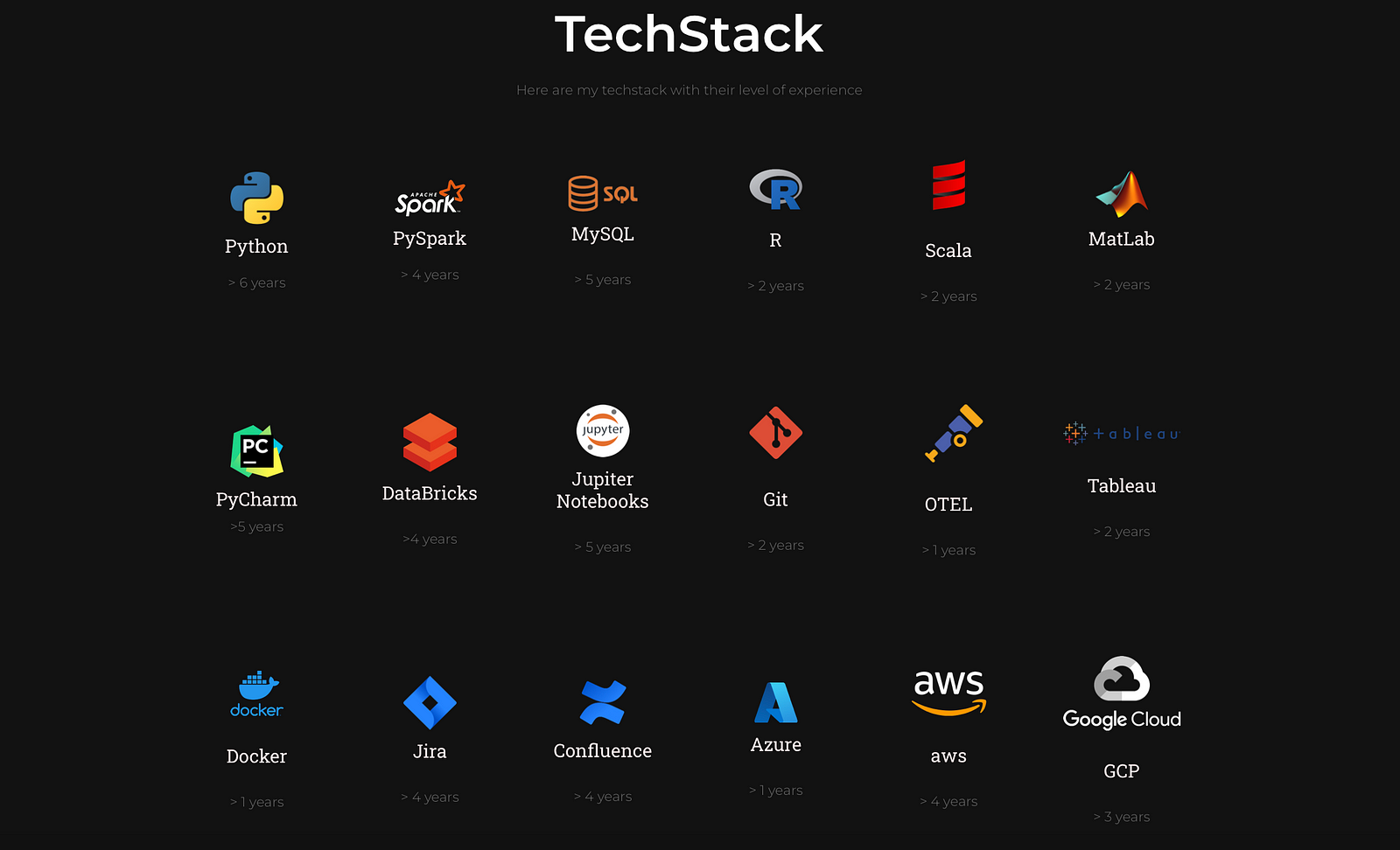
Make sure to add code samples too!..
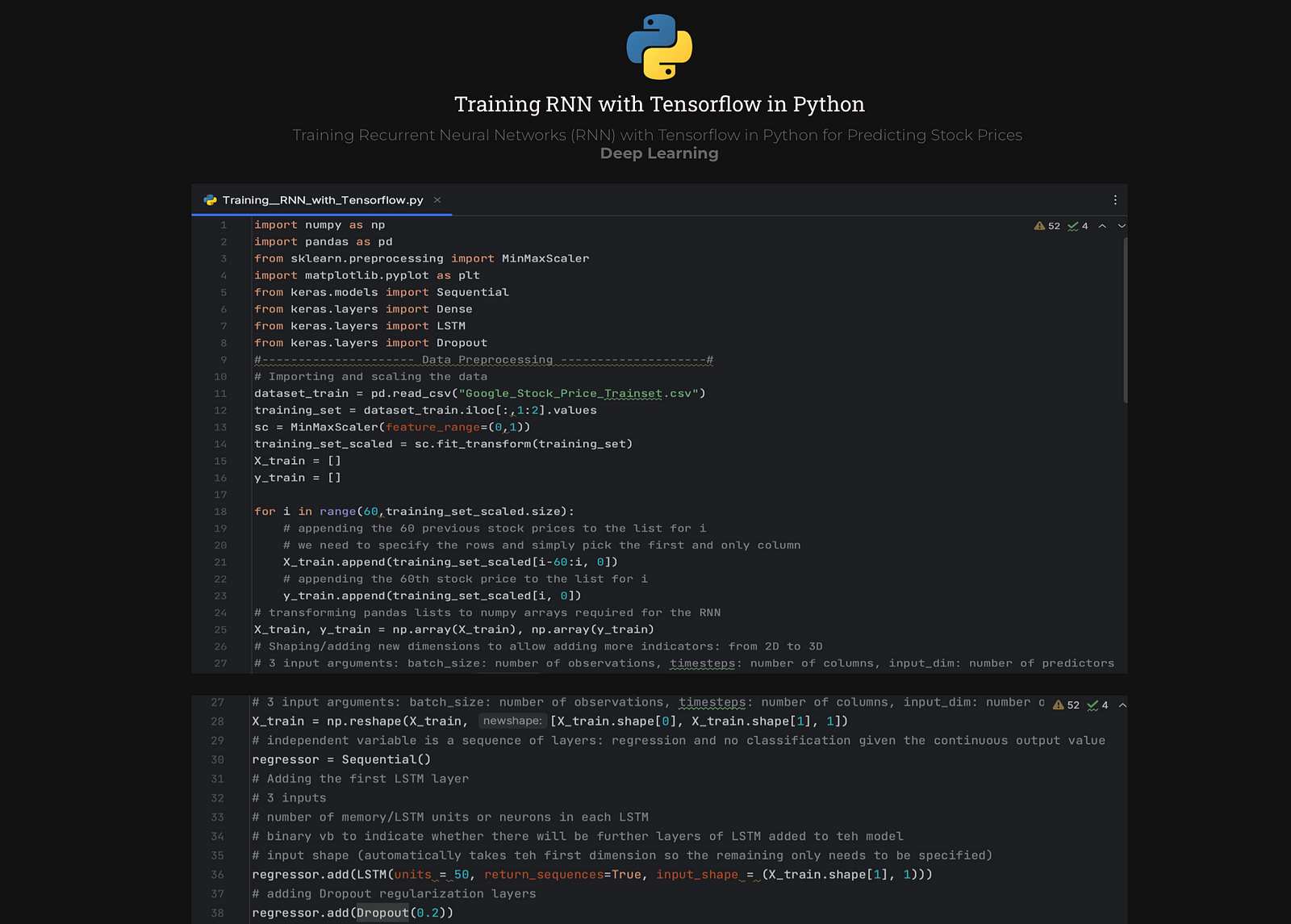
Publications & Tech Blogs Page
- Your Research Corner: If you’ve ventured into research, list out your papers, particularly if you’ve been the first author.
- Your Voice in the Field: Share articles, tech blogs, or opinion pieces you’ve penned, giving visitors a glimpse into your thoughts and expertise beyond your regular job.
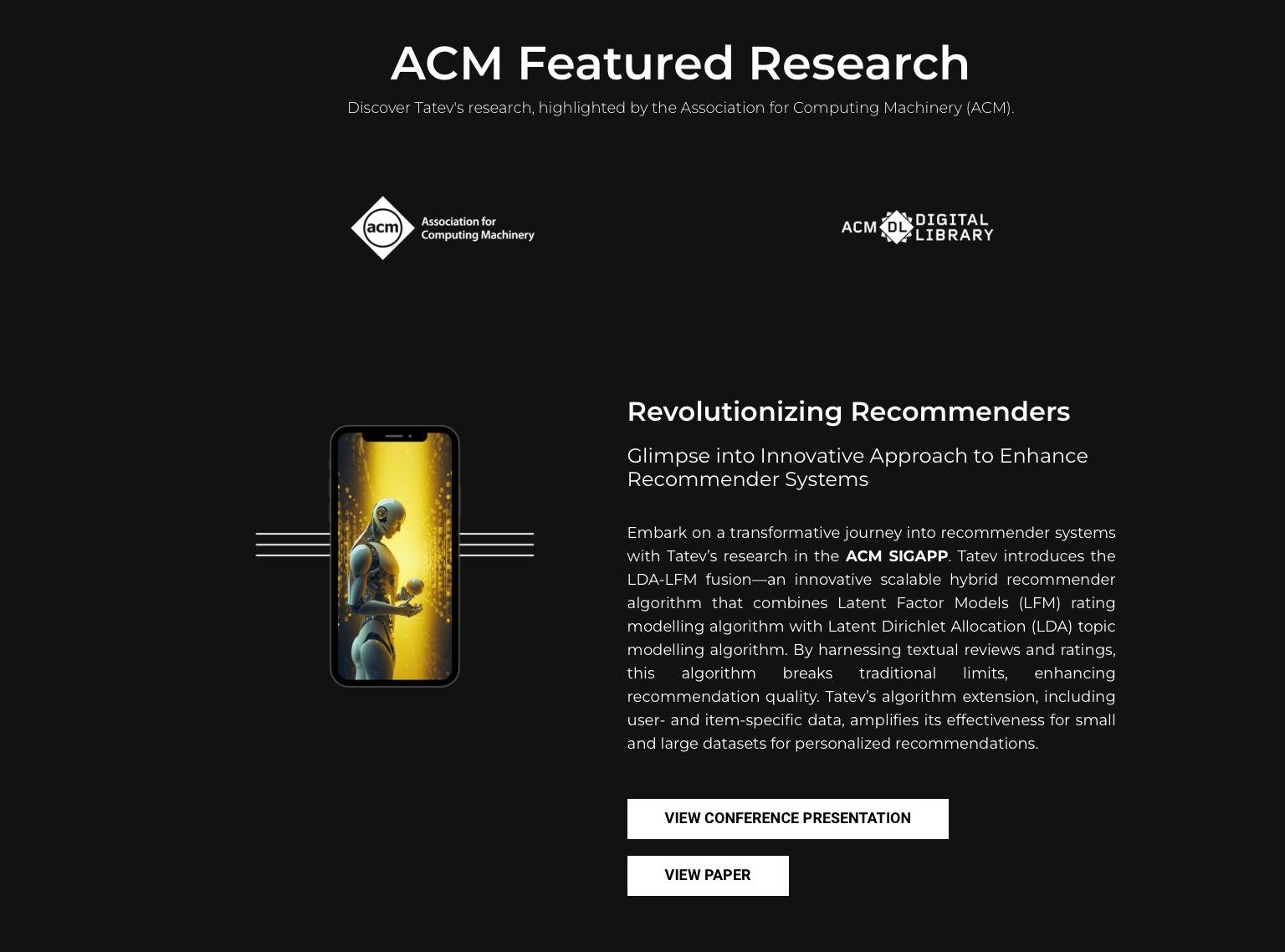
Press Releases Page
- Your Moments in the Limelight: Chronicle any media interactions you’ve had, be it interviews, podcast appearances, or notable mentions, emphasizing your influence in the industry.

Contact Page
- Keep Communication Lines Open: Offer a straightforward channel for peers, potential collaborators, or recruiters to connect with you. Integrating scheduling tools can also streamline interactions and show your organizational skills.

Free Resources Page:
- Contributions to the Community: If you’ve created any resources, such as handbooks, guides, coding libraries, or tools, list them here. Not only do these provide value to visitors, but they also underscore your commitment to the wider tech world.

Your personal website should be an evolving testament to your professional trajectory. Regular updates ensure you stay on the cutting edge, reflecting your growth in our dynamic industry.
And here's another example of a personal website from Vahe Aslanyan which you can find here.
How to Craft a Proper Github Profile
In my journey as a data scientist, I’ve had the privilege of speaking to many aspiring individuals.
One common starting point which we often discuss is their GitHub repository.
But there are a few things I’ve learned that I want to emphasize here:
It’s not just about the code. Your GitHub repository can reveal a lot about your technical abilities, but it’s your ability to go beyond the code that truly sets you apart. Data science is not just about writing algorithms and scripts – it’s about telling a story.
Every data science project is a narrative. It’s the story of a problem, a solution, and the impact it can have. It’s about understanding that we code, visualize, and analyze models, all for one purpose: to solve a real-world problem.
You should cultivate the art of data storytelling. When you present your portfolio, don’t just share your code – tell the story behind it. Explain the problem you were tackling, insights you discovered, and the value it brought. Use visualizations to make your narrative come alive.
So, aspiring data scientists, remember this: the ability to weave a compelling story around your projects is what will truly set you apart. It’s not just about the algorithms. it’s about the impact and the journey.
For your reference, here is my Github Profile:
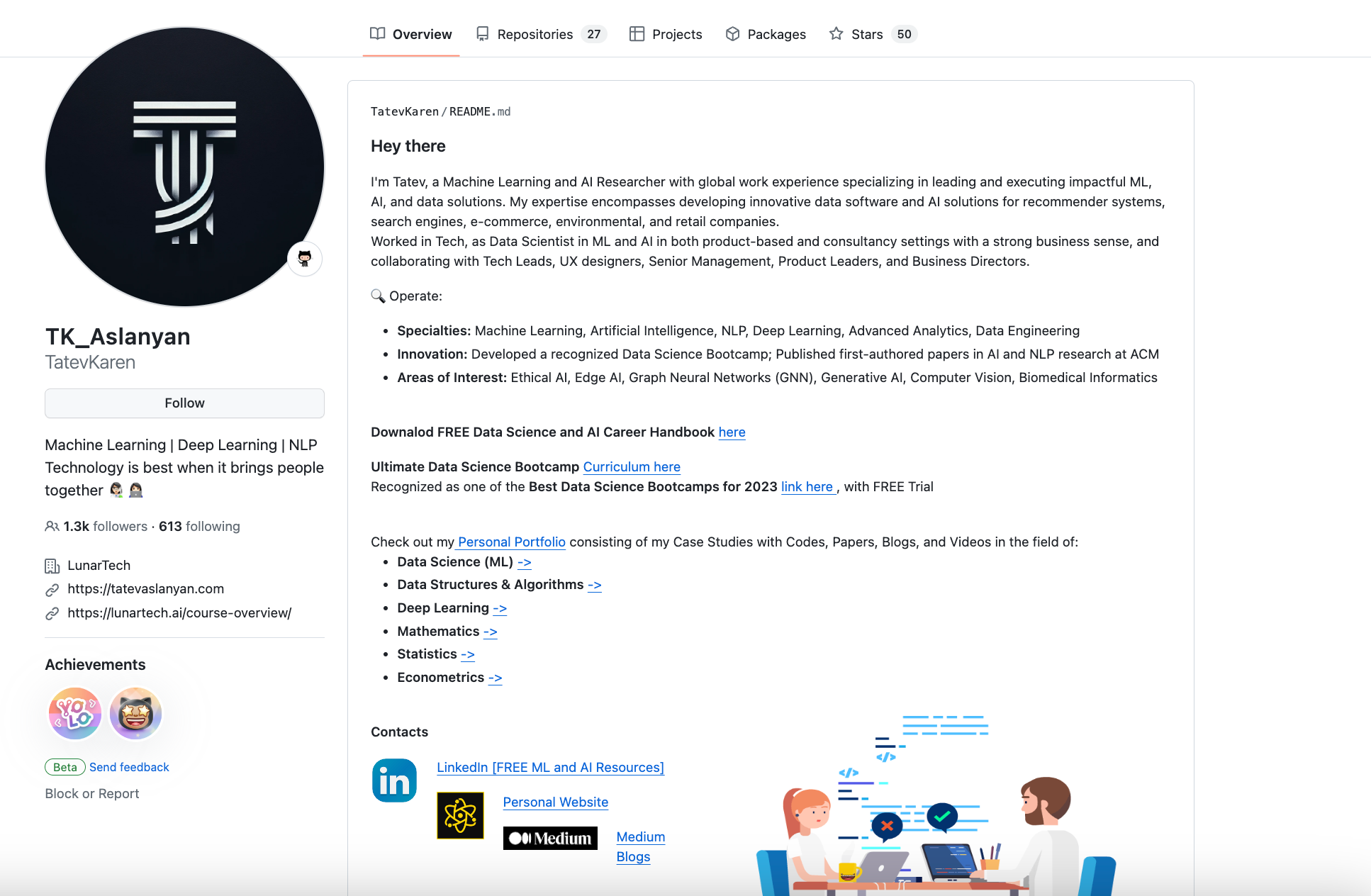
A visible and well-maintained GitHub profile can be a game-changer when applying for data science internships. It serves as a portfolio of your data science projects and showcases your coding abilities, problem-solving skills, and collaboration approach.
Make sure to include a variety of projects that highlight your expertise in areas such as data analysis, machine learning, and data visualization.
It's also helpful to actively participate in the data science community by contributing to relevant repositories and engaging in discussions.
The Takeaway: In data science, storytelling is a superpower. It’s the bridge that connects your technical skills with real-world impact. So, the next time you showcase your work, remember to let the story shine through.
How to Craft an Impressive LinkedIn Portfolio
In today’s digital age, LinkedIn stands out as the de facto platform for professional networking, job hunting, and brand establishment. Especially for those in the tech arena, a meticulously curated LinkedIn profile can unlock doors to incredible opportunities.
Here’s my step-by-step guide, based on personal experiences, to building a stellar LinkedIn portfolio:
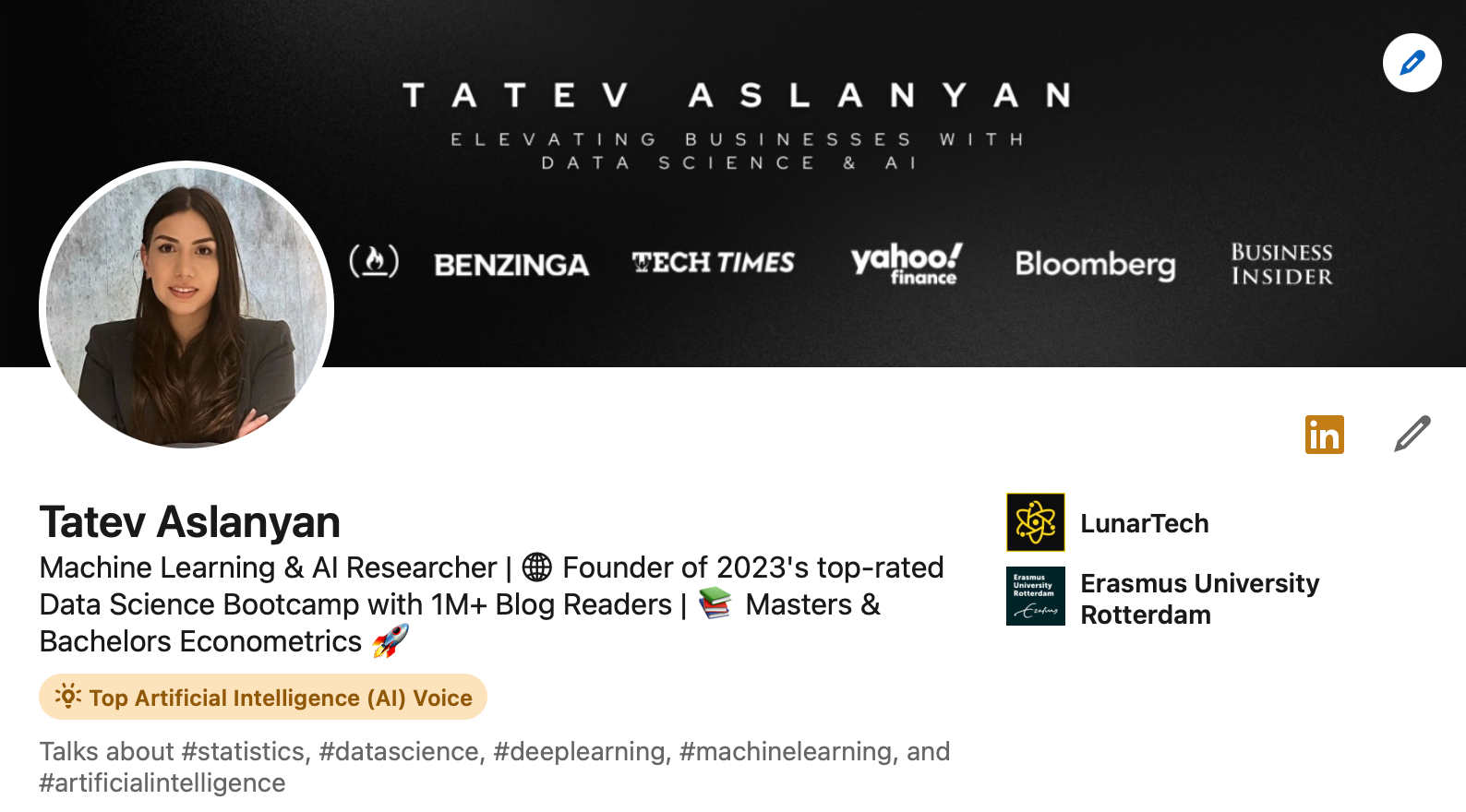
Use a Professional Headshot
A clear, well-lit, and professional image speaks volumes. It’s the first visual interaction a visitor has with your profile, so make sure it represents you authentically.
Use an Engaging Headline
More than just your current job title, use this space to convey your expertise and passion succinctly.
For example, “Data Scientist | ML Enthusiast | Transforming Raw Data into Actionable Insights.”
Write a Summary/About Section
Craft a narrative about your professional journey. Discuss what drives you, your significant achievements, and where you see yourself in the tech industry’s future.
Share Your Experience
Detail your professional roles, ensuring each entry is concise but provides context on your responsibilities, the projects you’ve been part of, and any notable accomplishments.
List Skills & Endorsements
List key skills relevant to your profession. Encourage colleagues and collaborators to endorse you, adding credibility to your listed abilities.
Provide Recommendations
A few well-worded recommendations from peers, supervisors, or collaborators can significantly elevate your profile. Consider writing genuine recommendations for others in your network too – reciprocity is often appreciated.
Add Your Education & Certifications
Include not just formal education but also any certifications or courses that enhance your professional stature, particularly in the tech domain.
Include a Featured Section
Showcase pivotal projects, publications, or any media appearances. Provide direct links to your work, be it on GitHub, personal blogs, or other platforms.
Be Active on LinkedIn
Engage with the LinkedIn community. Share insightful articles, comment on posts, and contribute your own content. This showcases your active involvement and keeps your profile buzzing.
Use a Customized URL:
Personalize your LinkedIn URL, making it cleaner and more professional. This also makes it easier to share on business cards or email signatures.
How to Create a Compelling Résumé
Here is an in-depth and step-by-step guide on building a perfect Data Science résumé.
I also go in detail in my Data Scienced career handbook which you can find in the Resource section below – so let’s save us some time and space in this section.
Just a quick tip to keep in mind: make sure your résumé is written in the language where your primary, target Hiring Managers and jobs are.

9. Understanding Nuances of Data Science Tools
Data science is not just about building models – it’s about understanding the complexities and nuances of data, tools, and statistics.
You'll need to take the time to dive deeper into statistical concepts, exploratory data analysis techniques, and data preprocessing methods. Understand the strengths and limitations of various algorithms and be able to apply them appropriately to different types of data.
Having a comprehensive understanding of the foundations of data science will enable you to make informed decisions and produce reliable insights.
Remember, building the necessary skills goes beyond completing online tutorials or attending workshops. It requires a commitment to continuous learning, active engagement in the data science community, and a willingness to go beyond the basics.
By developing hands-on experience, cultivating a visible GitHub profile, working on personal projects, and delving into the nuances of data science, you’ll position yourself as a strong candidate for a data science internship.

10. Tips for Landing Your Dream Data Science Internship
To secure a data science internship, it's essential to follow certain strategies that can set you apart in a competitive field. Here are a few steps you can take to increase your odds of landing your ideal data science internship:
Focus on Communication Skills
No matter your technical expertise, as an aspiring data scientist you'll need to possess excellent communication skills.
Being able to turn complex code and algorithms into stories that resonate with both technical and non-technical audiences is crucial for data scientists wishing to become effective communicators. This means effectively sharing your findings and insights in an organized fashion.
Use Social Media Platforms and University Resources
Make use of social media platforms like LinkedIn and Twitter to engage with data science professionals in the community. Join relevant discussions to show off your knowledge and passion for data science.
You can also take advantage of resources offered by your university if you attended one, such as career services or alumni networks for insight-gathering, networking, and finding internship opportunities.
Attend Virtual Career Fairs
Virtual career fairs have become an increasingly popular way to connect with potential employers and discover internship opportunities.
Do your research beforehand on each company attending the fair, and come prepared with questions and a pitch that highlights your skills and enthusiasm.
Think about the Timing
Timing is of the utmost importance when applying for data science internships. Many companies start recruiting months in advance, so be proactive and keep an eye out for internship postings as soon as they become available.
- Start planning your summer internship search as early as in November or December. Many top companies (big tech), especially in competitive fields like data science or AI, begin posting summer internship openings as early as January or February. By starting your planning early, you will have a head start in discovering potential opportunities and preparing your application.
- Make sure to take advantage of your university's resources, including career fairs and expos. Usually, in the early spring semester, your school may host career events where you can interact with recruiters from companies offering internships in Data Science. These events are great opportunities to gather internship opportunities and make valuable connections.
Keep in mind that landing a data science internship involves more than technical skills alone. It requires showing passion, eagerness to learn, and dedication. By following these strategies and tips you may increase your chances of securing an internship.

11. How to Discover Internships When Starting Out
Launching into data science can be both exhilarating and daunting – and finding internships may feel like an insurmountable hurdle. But there are strategies and platforms available that can help you if you're just beginning out.
In this section, we will cover effective methods of finding data science internships when you're just starting out.
Utilize Online Platforms and Job Boards
One of the easiest and fastest ways to locate data science internships is via online platforms and job boards, including LinkedIn, Indeed, Glassdoor and InternMatch. These platforms enable you to filter your search based on location, duration, and specific skills required.
You can regularly check these platforms for new internship postings that suit your interests and qualifications before making your selections.
Network and Seek Referrals
Networking can be an invaluable way to find internship opportunities when starting out in data science, especially as an undergraduate student.
Use platforms like LinkedIn or attend industry events and conferences to connect with professionals already working in this field. Reach out to professors, mentors or fellow classmates who may know about open internship positions.
Referrals can significantly increase your odds, as companies often place value on a recommendation from trusted individuals.
Research and Reach Out to Companies
Research companies that fit your interests and goals for data science. Many renowned tech giants, like Apple, Microsoft, and Google offer data science internship programs. Make sure you explore their websites' career or internship opportunities sections to see if any positions are open. Even if an internship program doesn't explicitly advertise itself, it's worth inquiring into potential internship opportunities.
University Career Services and Academic Resources
If you attended university, take advantage of the career services they provide. They may have resources, job boards, and connections with employers who can help you secure internships in data science.
You can also consult with professors or academic advisors as they may provide invaluable insight and knowledge regarding internship opportunities available within your university or industry partnerships.
Customise Your Application Materials
When applying for data science internships, it's essential that your application materials reflect each opportunity. Make sure your résumé, cover letter, and portfolio reflect relevant coursework, projects, and skills which meet internship requirements.
You'll want to demonstrate your technical abilities such as knowledge of various programming languages as well as any data analysis/machine learning experiences you've gained through academic studies or personal projects.
Stay Proactive and Persistent
Securing an internship in the competitive field of data science requires perseverance and proactive effort. Once your applications have been submitted, follow-up with companies. Also, making an impression at networking events or career fairs can also provide invaluable opportunities to meet companies directly and make connections directly.
Make sure that you demonstrate your passion for the subject matter while showing that you are committed to learning and growing within it.
Starting out in data science may seem intimidating, but with persistence and proper strategies in place, you can discover invaluable internship opportunities to kickstart your career.
Take an active approach by taking advantage of online platforms, networking with professionals and personalizing application materials so as to stand out among other candidates. Every step will bring you closer towards reaching your goal of securing an internship position in data science.

12. How to Apply to Internships
Applying for a data science internship can seem intimidating at first. With proper approach and preparation, though, the application process should become less daunting.
Here are some key tips and strategies that will make applying easier so that you can land that dream data science internship.
Make a Good First Impression with Your Résumé
A résumé often serves as the initial impression for potential employers, so it is vitally important that it makes a good first impression.
Tailor it for each company/internship so it highlights relevant skills and experiences aligning with the requirements. Add any coursework, projects, or certifications that demonstrate your technical abilities related to data analysis, machine learning or visualization. And quantify your achievements, when possible, to demonstrate impact.
Create an Engaging Cover Letter
An engaging cover letter can set you apart from other candidates. Use it to showcase your passion for data science and explain why this internship interests you specifically.
Include details about relevant skills, experiences, and accomplishments which make you an excellent match for the role. You can also highlight skills that fit with the internship's requirements and qualifications outlined in the posting.
Create and Maintain an Internal Knowledge Repository
Building a knowledge repository is an effective way to demonstrate both your expertise and commitment to continuous learning.
Start by creating a personal website or blog where you can post information about data science projects, case studies, and insights. Not only will this serve as an avenue to showcase your abilities, but it will also showcase how well you communicate technical concepts.
Understand Your Interviewer's Perspective
To be successful at an interview, it's crucial to gain an understanding of the perspective of the interviewer. Do your research on the company, its culture, and specific projects they are working on as well as any data science techniques and tools they utilize.
This knowledge will not only allow you to craft thoughtful questions but also to tailor answers according to company goals and values.
After an interview, it's essential to follow-up with an email or note expressing your appreciation and reasserting your desire for the internship role. This simple gesture shows professionalism and enthusiasm, and helps you keep the dialogue alive by inquiring about next steps in hiring process.
Try not to become discouraged. Landing a data science internship requires more than technical skills alone. Employers look for candidates who can effectively communicate their work, think critically, and demonstrate an enthusiasm for data science.
By creating an attractive résumé and cover letter, organizing a knowledge repository, understanding interviewer perspectives, and following up, you can increase your odds of securing that dream data science internship.

13. How to Overcome Challenges and Stand Out
Aspiring data scientists often encounter challenges on their journey towards landing an internship opportunity. With proper mindset and strategies in place, you can overcome these hurdles.
In this section, we'll explore some common challenges and offer effective solutions to make you stand out from your peers.
Align Your Skillset With Industry Needs
One of the greatest challenges faced by aspiring data scientists is keeping up with industry demands and the latest technologies and trends. Biggest key here is to know what are the latest trends but also whether you want to learn those trends.
By following Data Scientists and AI Engineers online, on platforms like LinkedIn or X (Twitter), you can usually discover the latest trends as these people tend to be the first ones to talk about them.
You can also read technical articles written by Data Scientists and AI Engineers who have been in the field for some time. This can also help you learn about the latest trends and to stay up to date. Read blogs on these topics, watch YouTube tutorials, and if you can afford it, take a course and do a project.
Also, subscribe to newsletters in Data Science and AI, which will tell you what those trending topics are. Example of this is our upcoming [The Data Science and AI Newsletter] or other newsletters in the field.
There you go, you are up to date!
Then the question is whether you should follow the trends you discover. Consider reaching out to people you admire and asking what they think about those trends and where they see them going at a high level.
This is important because, if you don't like Neural Networks and advanced math like Linear Algebra and Differentiation theory, then no matter how fancy GenAI might sound – it might not be the right path for you.
To overcome this challenge, consider these tips:
1. Keep Your Skills Current and Enhance them: Data science is an ever-evolving field, making it essential that you keep learning about the latest tools, programming languages, and algorithms. Take advantage of online courses, tutorials, and practical projects to expand your technical expertise and increase productivity.
2. Recognize and Build upon Core Competencies: While having an in-depth knowledge of various data science concepts is important, identifying your core strengths is equally as essential to making yourself stand out as well as making yourself more desirable to potential employers. This will not only increase your employability but will make you standout among competitors as well.
3. Collaborate and Network: Engaging with the data science community can bring invaluable insight and opportunities for collaboration. Join online forums, attend webinars or conferences, participate in data science competitions or even online competitions in order to expand your network and gain exposure to diverse perspectives.
How to Differentiate Yourself From Other Candidates
An increasingly competitive job market makes it hard to distinguish yourself from other candidates. To increase your odds of landing an internship position in data science, here are some strategies:
Build Your Personal Brand
Develop an online presence through a personal website, blog, or social media profiles focused around Data Science. Share projects, insights, and learning experiences to demonstrate your expertise and showcase yourself and your skills.
But you might be wondering – what is a personal brand, and how do you establish it? Well, personal brand is much bigger than your digital blue print. It's the story you tell to others and how others perceive you. It's essentially how you present yourself to the world, especially in a professional context and in the tech world.
Your personal brand is a unique combination of skills, experiences, and personal characteristics that you want the world to see in you. It should show you as a whole and differentiate you from the rest.
What I mean here is that if you and someone else have worked at the same company and you have the same degree, your personal brand will show the differences in who both of you are.
Are you an energetic and creative self-starter with an "I can do it all" attitude? Are you thoughtful and deliberate with great attention to detail and incredible listening skills? Are you a leader, a visionary, who wants to inspire others? These are all things you can convey through developing your personal brand.
Here is an my own example of personal branding:
You will see consistency across various platforms where you find information about me. You will see that I have similar pictures showing casual, business-casual types of images, because that's my brand. I distinguish myself as someone who not only has expertise in the field of Data Science but also in the areas of Machine Learning and AI, so I am all about full-stack knowledge and then specialization.
You will also see that across many platforms, whether it's freeCodeCamp, LinkedIn, X, Medium, or LunarTech, everywhere I'm trying to help other data scientists and AI engineers get into the field by making education accessible to them. I also constantly explain and showcase my intention to do so, as I have seen firsthand how hard it can be to spend years and a lot of funds on learning Data Science and AI.
I try to help others so that they don't have go through the same long and expensive process by simplifying it.
I also advocate for women in tech. I showcase my skills and my areas of expertise in Machine Learning and Data Science across all these different platforms. Also when I'm networking and maintaining my professional contacts, I try to spread information about my brand and what I stand for and why I'm doing what I'm doing.
A brand isn't just about your online presence – it's also about your personal story. What's your background? What's your experience? What's the journey you took in order to become who you are? What motivated you? What helps you to stay motivated? And what is unique about your story?
For instance, in my case, I have faced many challenges as a woman in tech to get where I am. But I've learned to see all the setbacks as opportunities to get to the next level. To never give up.
So, how does your intended audience perceive you or think about you? In the beginning, it might be very different than once you start to build your brand. How are others talking about you? Are you ambitious? Are you an individual contributor or manager type? Do you like to interact with people? Are you only passionate about technology or are you also passionate about people, and the business? These are all things to consider.
Use Your Soft Skills
Don't ignore the value of soft skills! Focus on honing your communication, collaboration, and problem-solving capabilities, too. They're as essential for teamwork and client interactions as any technical skills you have.
Networking and Mentorship
Connect with professionals in the data science industry through networking events, LinkedIn, or industry conferences. Seek mentors who can guide and advise during your journey. Their insights may prove invaluable when applying for internships.

14. Conclusion: The Journey Ahead
At this point, take some time to reflect upon all of the wisdom and insights you've learned throughout this guide. By following the steps outlined here, you now have a strong base from which to launch into Data Science's dynamic field.
Just remember, Data Science isn't just one thing – but rather, the field offers numerous opportunities that await discovery.
Now you can step confidently into your data science journey with confidence and intent. Take pleasure in exploring its diversity while following your passion along the way.
Here is a snapshot of key takeaways from this guide:
- Build a Solid Foundation: Start by developing a comprehensive understanding of data analysis, machine learning, and visualization as building blocks of data science. These skills will form your roadmap on your data science journey.
- Gain Practical Experience: Although courses and bootcamps have their place, practical experience is an indispensable component of data science. Create an active GitHub profile and work on personal projects that showcase your talents and expertise to advance in this industry.
- Always be Learning: Data science is an ever-evolving field with new techniques and technologies emerging almost daily. Stay current on trends, research papers, and industry developments by regularly investing in expanding your knowledge and abilities.
- Network Effectively: Networking is essential in the data science community. Attend virtual career fairs, engage with professionals on social media platforms such as LinkedIn or social media groups like Reddit, or utilize university resources. Networking can open doors to exciting internships or employment opportunities.
- Craft an Impactful Application: When applying for data science internships, it's crucial that your application stands out. Using a résumé, cover letter, and portfolio can help you convey your story of what makes you unique as an individual. After all, coding skills are just one component. Likewise, highlight experiences, projects, and achievements so they separate you from competitors.
- Overcome Challenges: Aspiring data scientists face numerous hurdles along their journey. From lack of experience or technical barriers, to rejection and setbacks, remember that resilience and perseverance are vital qualities needed for success. Look to mentors, peers, and online communities to seek assistance for overcoming barriers.
Keep this in mind as you start out on your data science journey: success won't just mean landing an internship. Rather it should involve continuous learning and growth. Be open to exploring various industries as data science opportunities exist across healthcare, finance, e-commerce and more.
Now is the time to embrace all that awaits you in data science. Take advantage of all its endless opportunities!

About the Author — That’s Me!
I am Tatev, Senior Machine Learning and AI Researcher. I have had the privilege of working in Data Science across numerous countries, including the US, UK, Canada, and the Netherlands.
With an MSc and BSc in Econometrics under my belt, my journey in Machine and AI has been nothing short of incredible. Drawing from my technical studies during my Bachelors & Masters, along with over 5 years of hands-on experience in the Data Science Industry, in Machine Learning and AI, I've gathered this high-level summary of ML topics to share with you.
Become Job Ready Data Scientist with LunarTech
If you’re keen to dive even deeper and structured learning is your style, consider joining us at LunarTech. You can become a job ready data scientist with The Ultimate Data Science Bootcamp which has earned the recognition of being one of the Best Data Science Bootcamps of 2023, and has been featured in esteemed publications like Forbes, Yahoo, Entrepreneur and more.
This is your chance to be a part of a community that thrives on innovation and knowledge. You can enroll in the free trial here.
Connect with Me
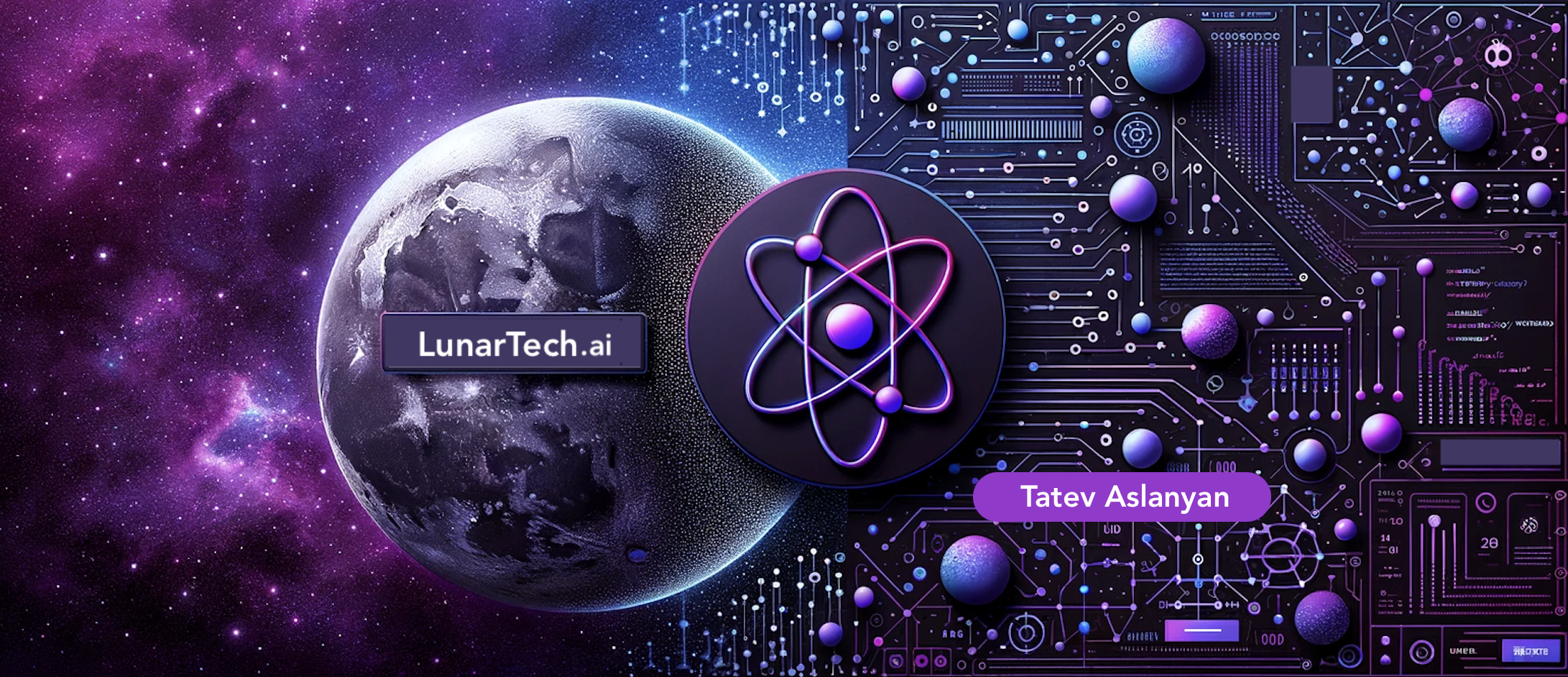
- Follow me on LinkedIn for a ton of Free Resources in ML and AI
- Visit my Personal Website
- Subscribe to my The Data Science and AI Newsletter
Thank you for choosing this guide as your learning companion. As you continue to explore the vast field of machine learning, I hope you do so with confidence, precision, and an innovative spirit. Best wishes in all your future endeavors!

